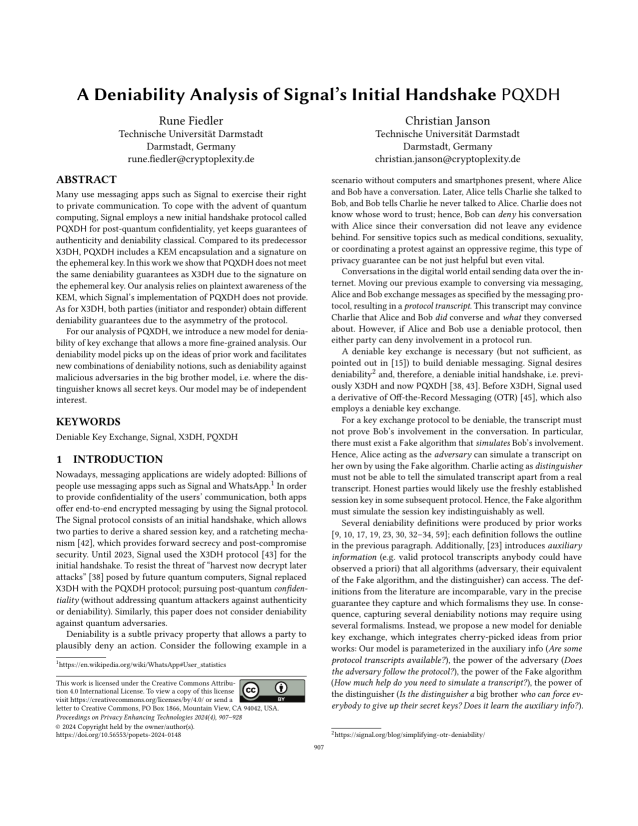A Deniability Analysis of Signal’s Initial Handshake PQXDH
Authors: Rune Fiedler (Technische Universität Darmstadt), Christian Janson (Technische Universität Darmstadt)
Volume: 2024
Issue: 4
Pages: 907–928
DOI: https://doi.org/10.56553/popets-2024-0148
Abstract: Many use messaging apps such as Signal to exercise their right to private communication. To cope with the advent of quantum computing, Signal employs a new initial handshake protocol called PQXDH for post-quantum confidentiality, yet keeps guarantees of authenticity and deniability classical. Compared to its predecessor X3DH, PQXDH includes a KEM encapsulation and a signature on the ephemeral key. In this work we show that PQXDH does not meet the same deniability guarantees as X3DH due to the signature on the ephemeral key. Our analysis relies on plaintext awareness of the KEM, which Signal's implementation of PQXDH does not provide. As for X3DH, both parties (initiator and responder) obtain different deniability guarantees due to the asymmetry of the protocol.
For our analysis of PQXDH, we introduce a new model for deniability of key exchange that allows a more fine-grained analysis. Our deniability model picks up on the ideas of prior work and facilitates new combinations of deniability notions, such as deniability against malicious adversaries in the big brother model, i.e. where the distinguisher knows all secret keys. Our model may be of independent interest.
Keywords: Deniable Key Exchange, Signal, X3DH, PQXDH
Copyright in PoPETs articles are held by their authors. This article is published under a Creative Commons Attribution 4.0 license.

